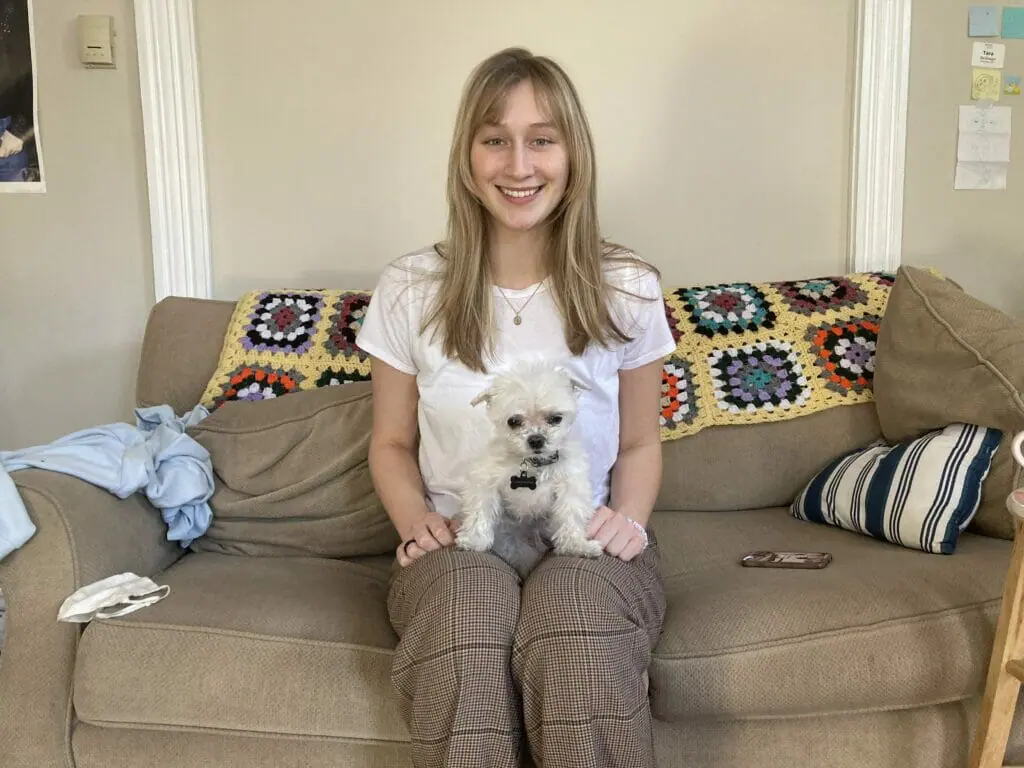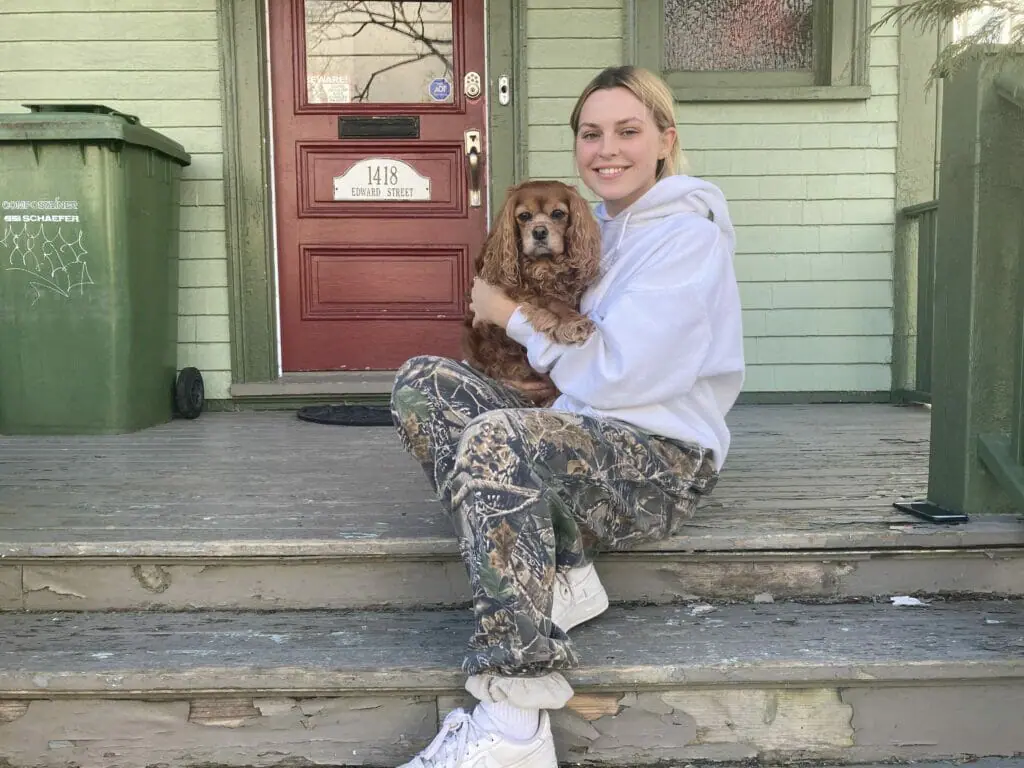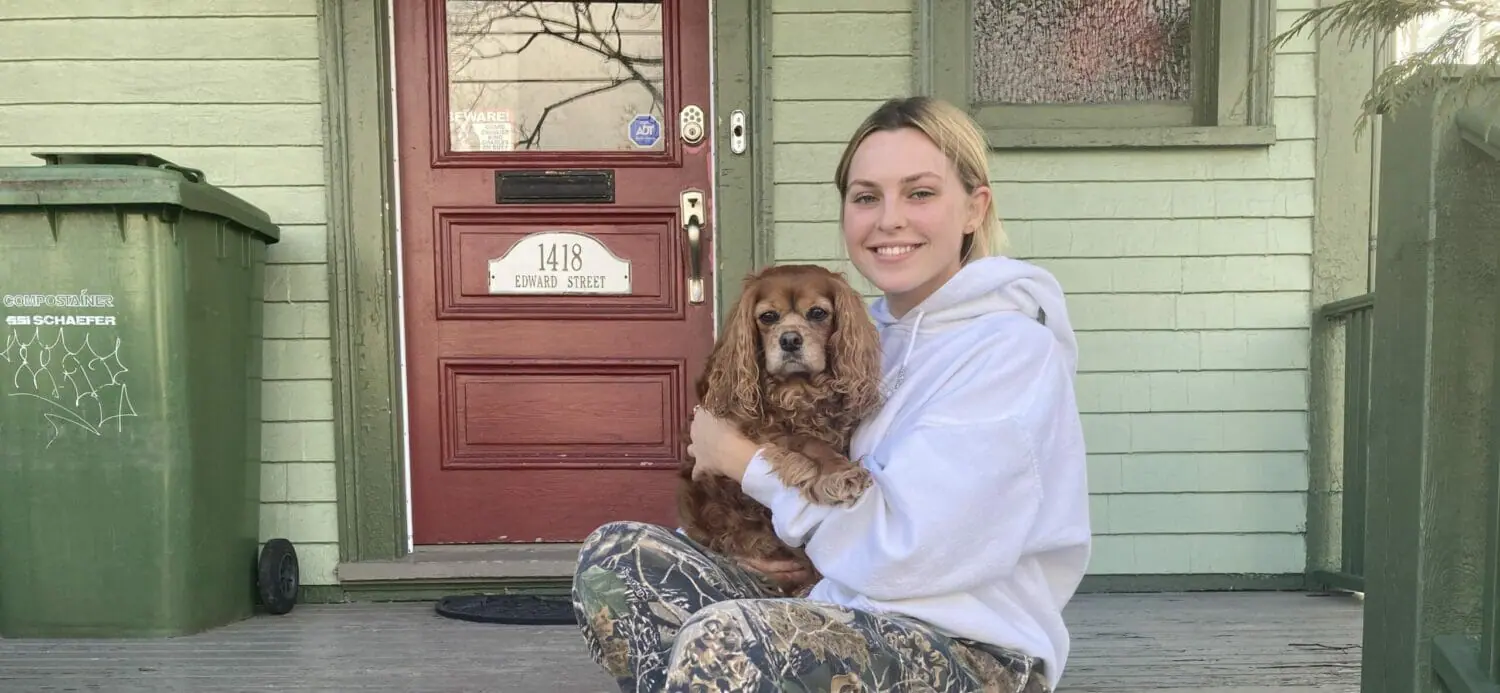The COVID-19 pandemic has forced people to work, relax and play all day with their pets at home. For some pet owners at Dalhousie University, this experience has been a mixture of labour and love.
Added love during lockdown
Grace Metcalfe, a first-year science student from Toronto, has discovered that just by caring for her 11-year-old Cavalier King Charles spaniel, Disney, she has had an easier time coping with the pandemic.

“Even just having her with us will boost the morale of the entire house,” she said. “I feel very lucky to have her.”
Kate Cameron, a third-year sociology student at Dalhousie has had her Maltese, Henry, for 12 years. When she moved back to Halifax in her second year, she decided to bring Henry with her, and has been travelling with him back and forth from Calgary ever since.
“Since the beginning of the pandemic, I have interacted with Henry more,” Cameron said, though this has mostly been inside, as she’s been worried about catching COVID-19 while leaving the house with him.
The isolation of the pandemic has created a deeper bond between pets and owners. To bond and to take care of Henry, Cameron has created a pandemic routine.
“I feed him in the morning and let him out four times a day to go to the washroom, give him lots of cuddles, feed him treats and groom him,” she said.
Similarly, Metcalfe said having Disney around is a welcome distraction from the current state of the world.
“It’s great to have [Disney] because she keeps me busy. Having her is helpful. She reduces depression and anxiety, and improves [me and my roommates’] mental health.”
It’s not all love and long walks
Caring for dogs during the pandemic has produced some challenges. Such as when Metcalfe and Disney completed their 14-day self-isolation after entering the province.
“It was pretty difficult just because you’re not able to take them for like walks or anything like that, and we had to stick strictly to the backyard,” Metcalfe said. “It was also difficult to have her in [my house] for the entire day because normally she’ll spend like a couple of hours outside.”
She has also noticed that social distancing rules have made it challenging to get Disney to socialize with other dogs.

“I find other people have changed, and don’t really come up and socialize their dogs. [On the sidewalks] people go across the street so they don’t have to walk past us. It kind of worries me because I don’t want my dog to get socially anxious because she’s not seeing other dogs.”
Cameron has found a way to get Henry to socialize just by virtue of living with other people.
“He always has people around him because of my roommates,” she said.
Both Metcalfe and Cameron believe their dogs have noticed a change since the pandemic began.
“[Henry] could probably sense that there were changes in the beginning,” Cameron said. The pair spent a lot more time together than usual when the pandemic began. She thinks that Henry has grown accustomed to the pandemic life and probably does not notice the changes as much anymore.
“[Disney] definitely has noticed a change in scenery, and she would have noticed a difference just because she’s not seeing dogs or family members as regularly,” Metcalfe said. “[She’s also] in this confined space and sees the same six people who live in my house a lot.”
An expert’s take
Silvia Jay, a dog behaviour consultant who has been working with dogs since the late 1990s, said in an email to the Dalhousie Gazette that the lack of socialization for dogs during the pandemic is not much of a concern.
“Even with ‘COVID-19 puppies,’ as long as they were still exposed, and as long as they’re with the odd visitor, that is typically enough to prevent neophobia [the fear of something new],” she said.
However, what is a concern is the effect of owners’ changing schedules on dogs during the pandemic. Jay explained newly adopted dogs can get separation and isolation anxiety when their owners go back to work in person.
Dogs who were adopted pre-pandemic whose owners now work at home may not get enough rest –– something they’d usually do while their human is at work or class –– which “can lead to all sorts expressions rooted in frustration and overstimulation, including barking and generally overreacting to stimuli,” Jay said.
To help dogs get used to the constantly changing nature of the pandemic, Jay recommends owners take dogs out to explore the outdoor environment, leave them alone for a short time if they have developed separation and isolation anxiety, or provide them with a resting place away from humans.


Recent Comments